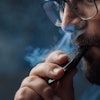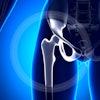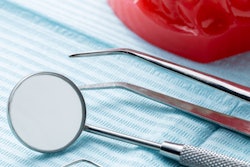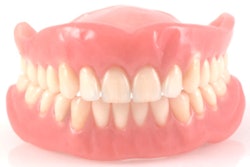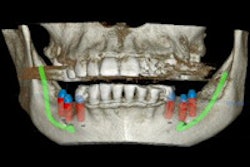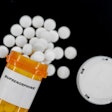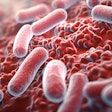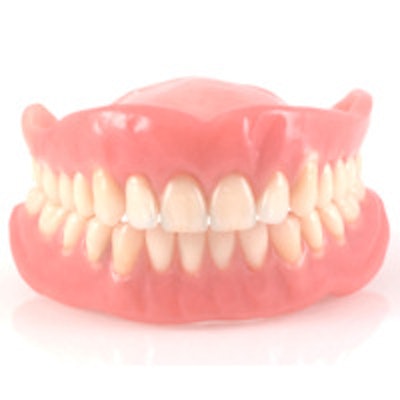
Denture-related stomatitis is currently thought to be a candidal infection. However, a new study in PLOS One on the oral microbiome of denture wearers has found that the condition is more complex than originally thought, which may eventually change how you treat these patients.
As there is a limited understanding of denture plaque and how it directly influences denture-related stomatitis, a team of researchers from the U.K. and the Netherlands sought to compare the microbiomes of denture wearers with those of patients without dentures. Led by Lindsay E. O'Donnell from the Glasgow Dental School, the study authors wanted to understand how denture plaque and microbiome composition affected a patient's oral cavity.
"We have shown that dental and denture plaques are significantly distinct both in composition and diversity and that the oral microbiome composition of a denture wearer is variable and is influenced by the location within the mouth," the authors wrote (PLOS One, September 14, 2015).
Causative agent
Denture stomatitis is defined as an inflammation of the oral mucosa and pathological changes associated with denture wearing. Previous studies have identified Candida albicans as being the main causative agent, affecting between 30% and 70% of denture wearers.
Denture-related stomatitis is the primary condition that denture wearers experience, the authors noted. Causes include poorly fitting dentures that cause trauma or biological factors, such as poor salivary flow, smoking, antibiotic treatment, or microbial infection.
Antimicrobial peptides have been found in saliva, but no studies have investigated the role, if any, these peptides play in protection against denture plaque. So the researchers of the current study included antimicrobial peptides in their investigation.
The researchers obtained swab samples from 123 participants (80 female) with a mean age of 70.7 years. Two-thirds of the patients wore complete upper dentures, with the remainder (33%) having a partial upper denture with one or more natural teeth remaining. Clinical diagnoses indicated that 37% of participants had inflamed mucosa and denture stomatitis.
The researchers determined the bacterial composition of each sample and completed sequencing data processing. They buffered the dentures with sonic waves to remove the microbial flora and then cultured the flora and obtained samples of unstimulated saliva. They measured the antimicrobial peptide levels by an enzyme-linked, immunosorbent assay (ELISA).
The researchers found that samples taken from the patients' dentures were predominantly made up of Bacilli and Actinobacteria. These contribute only 30% to dental plaque, illustrating the differences between denture and dental plaque, they noted. While antimicrobial peptides were quantified, they showed no specific correlation to denture stomatitis, according to the study authors.
Potential therapeutics
Natural dentition has a "profound impact" on the composition and diversity of the oral microbiome of a denture wearer, not only at the sample site but for a patient's entire oral cavity, according to the authors. The more natural teeth a patient has, generally the better, they noted.
Both fungi and bacteria clearly play a role in defining the progression of denture stomatitis, the authors concluded. They were, however, unable to show a "defined role" for antimicrobial peptides.
"With the detailed knowledge we have gained from this study, we can achieve a better understanding of the pathogenesis of denture-related disease and which will aid toward the development of potential therapeutics," they wrote.
